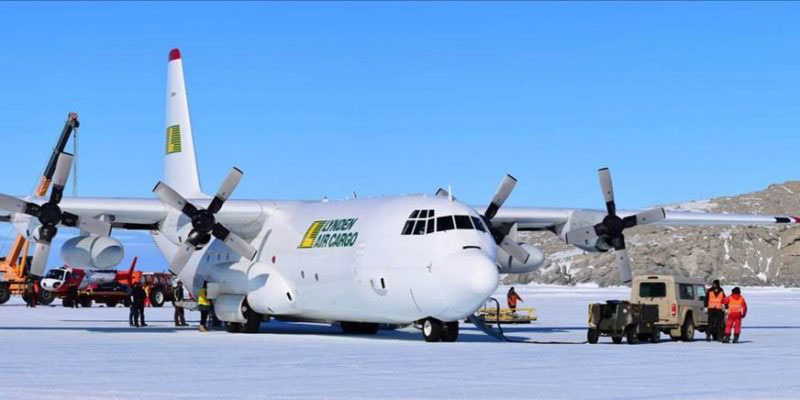Metro Aerospace, the exclusive manufacturer of drag-reducing Microvanes, has received Federal Aviation Administration Supplemental Type Certificate (STC) approval to install its Microvanes on the Lockheed Martin L-100 (L382G) Hercules aircraft.
Simply put, the 3D printed Microvanes reshape the air flow around the aft cargo door, reducing total aircraft drag and thrust requirements. Reducing aerodynamic drag with Microvanes slashes fuel consumption and greatly reduces carbon emissions.
“Our partnership with Lynden Air Cargo helped achieve FAA certification, providing Metro with our first certified civilian airframe,” said Leslie Peters, CEO of Metro Aerospace. “This STC approval is a ground-breaking accomplishment for Metro Aerospace, and we are thrilled to offer Microvanes to the L-100 Hercules community.”
Regarding Lynden Air Cargo’s maiden voyage of their L-100 sporting the Microvane technology, Ethan Bradford, Technical Services at Lynden Air Cargo reported that, “The first flight since installation of Microvanes arrived five minutes early, with an extra 4-5 knots at altitude, and 3,000 pounds more fuel on board than planned upon arrival.” In addition to the fuel savings seen on this short four-hour flight from Kelowna, BC to Anchorage, Alaska, an additional 9,400-pound reduction in carbon emissions was achieved as well.
The Microvane-equipped L-100 has already earned its merit with a subsequent trip from Alaska to Antarctica, via New Zealand. Metro Aerospace continues with a targeted focus on adapting drag-reducing Microvane technology to a variety of other commercial airframes.
